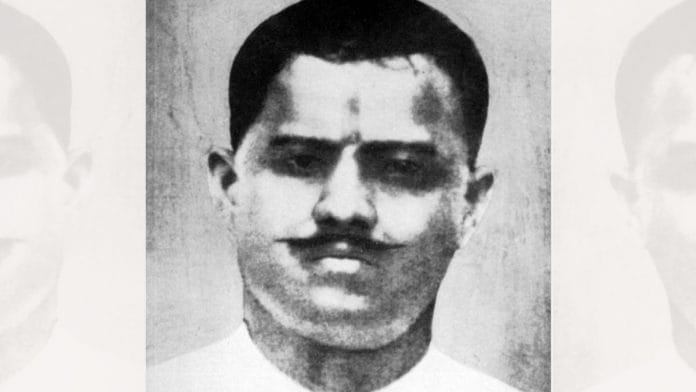A day before his death, revolutionary and freedom fighter Ram Prasad Bismil wrote a letter to his friend. Along with it, he also penned a poem saying if he had to die in the service of the nation, he would gladly do it a thousand times. The next day, 19 December 1927, the 30-year-old Bismil was hanged at Gorakhpur Jail.
A man of many talents, his words have travelled from generation to generation, across states, languages, and beyond. His language of agitation against colonialism was poetry and he sought nothing but freedom for his beloved country till the last breath.
He was born on 11 June 1897 in a non-descript village in Shahjahanpur to Mulridhar and Moolmati in Uttar Pradesh. Bismil’s love for poetry began at an early age when he joined the Arya Samaj. He began penning patriotic verses in Hindi and Urdu under several pen names like Agyat, Ram, and Bismil. A patriot from a young age, it was the death sentence of Bhai Parmanand, an Arya Samaj missionary, that sow the seeds of revolution in the heart of 18-year-old Bismil. He resorted to words, as he would do consistently later in his life, to channel his anguish via the poem ‘Mera Janm’.
Also Read: Hanged at 27, Ashfaqulla Khan was a revolutionary with fire in his belly
Patriot to revolutionary
From the time Bismil started to read and write, he discovered his first love—his motherland. After the death sentence of Bhai Parmanand (which was later commuted), he joined a revolutionary group headed by Pandit Genda Lal Dixit at the age of 19. Along with Dixit, Bismil began to mobilise youth from areas like Etawah, Mainpuri, Agra, and Shahjahanpur for organisations like ‘Matrivedi’ and ‘Shivaji Samiti’.
Along the way, he began looting government treasuries to fund these organisations, in an almost Robin Hood-esque manner. His status quo also evolved to that of a revolutionary and a freedom fighter. Unlike Mahatma Gandhi, he firmly believed that “independence could not be achieved by means of non-violence”. He participated in the Mainpuri conspiracy in 1918, then he was part of the loot in Kakori near Lucknow in 1925. By then, he had gained a confidant and a “brother”, as he described him, by the name of Ashfaqulla Khan.
Later, in his book that he finished writing in jail, two days before his execution, he wrote about Khan fondly. The book read: “You became my brother in a few days but you were not content to remain in that position. You wanted equality and to become my friend. You succeeded in your efforts. You became my loved and honoured friend.” His autobiography, Kakori Ke Shaheed, was published by renowned journalist Ganesh Shankar Vidyarthi in 1928.
Also Read: Chandra Shekhar Azad — the revolutionary who was at odds with Mahatma Gandhi
Bismil’s love for the country through poems
In his 30-year-long life, Bismil wrote several poems professing his love for the country and about the significance of the freedom struggle.
Sarfaroshi ki tamanna, ab hamare dil mein hain
Dekhna hai zor kitna, baaz-u-ae kaatil mein hain
Waqt aane de bata denge tujhe ae aasmaan
Hum abhi se kya bataein, kya hamare dil mein hain
Din khoon ke hamare, yaaron na bhul jaana
Sooni padhi kabar pe ik gul khilate jaana
The above-mentioned verse is one of the most celebrated and cherished in the history of the Indian freedom struggle. To date, this verse can be heard during protests. In the wake of the anti-CAA protests in 2019, Bismil emerged as a revered icon of Hindu-Muslim unity.
Duniya se ghulami ka
Main naam mita dunga,
Ek baar zamane ko
Azaad bana dunga
Most of his poems stressed the significance of freedom and hoped to inspire the youth to take the fight against the British even after his demise.
(Edited by Srinjoy Dey)






